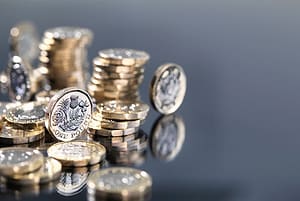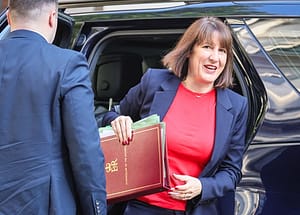The UK’s Fairtrade chocolate category is exploding
Ah – Easter weekend. A time of chocolate, more chocolate, and a bit more chocolate. As it happens, there is something of a revolution happening in our favourite cocoa-based consumer goods category.
Fairtrade chocolate sales in the UK topped £820m in 2013, a 52% increase on 2012, according to the Fairtrade Foundation. That’s almost 10-fold the amount bought in 2003. Today, more than a fifth of UK chocolate carries a Fairtrade mark.
The movement has been helped by Cadbury’s acquisition of Green & Black’s in 2005, and then its decision to take Dairy Milk Fairtrade in 2009.
But Divine Chocolate has been a true bastion of the Fairtrade chocolate movement throughout. The social enterprise is 45% owned by the Ghanaian farmers who grow its cocoa beans, who get 45%of profits, as well as benefiting from the sale of their beans, empowering them economically.
Divine was founded in 1998. Sophi Tranchell – who you may well recognise from the new Business is GREAT advertising campaign – joined as managing director the following year, and has grown the social enterprise to an annual turnover of £8m in the UK and a further $6m in the US. Divine is sold in the UK, US, Canada, Australia, across Europe, in South Korea and Japan.
Tranchell previously ran an independent film distribution company, having become responsible for it unexpectedly. “When I saw an advert for Divine, I just thought it was an amazing opportunity,” she says.
She tells us how she turned that opportunity into the blossoming business it is today, and how other social enterprises can do the same.
How have you grown the business to this size, and what have been your biggest lessons along the way?
One of the lessons would be: be careful what you wish for. We wanted to be the setter of good examples. We hoped that in proving you could do business differently and do well, other companies would consider converting to Fairtrade. In a way, since 2009 [when Cadbury took Dairy Milk Fairtrade], some of the biggest corporations in the world have converted their biggest brands in the world to Fairtrade.
And that’s really good for farmers, and absolutely what we wanted, but that did create a challenging environment. We created the competition to ourselves, in a way.
![]()
So what differentiates you from the competition?
I suppose I’ve always thought that the product range we do is quite special – it’s not the same as the big corporations’. We’ve prided ourselves in developing a traceable supply chain so that we know that the chocolate we’re selling you is from the beans of the cocoa farmers that actually own the company.
That’s quite difficult to do, and quite different from what’s going on in the mainstream, where increasingly things are becoming great big anonymous supply chains because everything’s getting consolidated in such a scale.
What have you learnt about the fast-moving consumer goods (FMCG) sector?
How incredibly powerful the supermarkets are. If you want to do an FMCG product in Britain, you probably need to get them to stock it to make it a success, and actually that’s kind of hard work.
Is there any dilemma in selling an ethical product through supermarkets, which don’t necessarily have the greatest ethical track record?
We always intended to sell to supermarkets. They were our first customers. The advantage of a supermarket in Britain – which is not the same in other countries – is that they distribute to themselves. As a small company, we deliver to one place, and they then put it out to their whole network. So if you can crack it, it’s a good piece of business for a small business to do.
But it is high risk, because they can make decisions and execute them incredibly quickly, so you can get lumbered with a lot of stock that you can’t find someone else to buy.

Divine’s Easter collection 2014
What are the challenges of being a social enterprise?
In some ways being a social enterprise has been our biggest asset. We’re a social enterprise because farmers in Ghana own 45% of us, and we’re here to improve their livelihoods to give them a bigger share of the wealth we’re creating.
If we hadn’t had that, we were actually entering one of the most mature and concentrated markets in the world in chocolate. So what would we have said that was unique to the market? What would have motivated people to seek out our brand and be loyal to it, to ask supermarkets to stock it? How would we recruit people at salaries probably not as competitive as if you went to work for Mars?
It made people want to go out there way to do TV programmes about us, to get us stock, to get teachers teaching about us. So in a way it was a ginormous asset.
What about the challenges specific to Divine?
We contract our manufacturing. Finding manufacturers who are prepared to do traceable supply chains and run batch systems so that you know this batch is ours, that’s been quite challenging. […] There are a very limited number willing to do [fully traceable supply chains].
You’re very international already – why did you pick the markets you’re in?
What [the UK, US, Canada, Australia, Scandinavia, in South Korea and Japan] have in common is they all like the taste of our chocolate. Whereas Italy, Spain, France – they tend to have an appetite for stronger, darker chocolate, probably sourced from Latin America, which has quite a different taste profile to it. From Ghana we’re going to make chocolate that tastes quite mellow.
>> Happy Easter: 5 most eggstravagant eggs around the world
What advice would you give to fledgling social enterprises?
You need to develop really good products – whether that are tangible things that you sell or services you provide, both of those things have to be as good as they can be. It’s not good enough that there’s a good story behind it.
[…] There are great places to get advice – the Business is GREAT campaign is a good place to start. Social Enterprise UK also give social enterprise start-ups really clear advice.
What about when it comes to growing a social enterprise?
You need to really pick your partners carefully. Probably some of the best things Divine has done are the things we chose not to do. We didn’t take money from anyone who offered it unless we thought they shared our values, as we thought that would create mission drift.
And we didn’t necessarily do every contract that came our way. We did the own-label for Starbucks and Co-op, but we haven’t for others. […] And we’ve worked with both of those for almost 11 years, because we assessed that they shared our values.
What else could be done to support the social enterprise sector?
We are starting to see social enterprises getting bigger. And that’s partly to do with changes in the law – the fact you can now put value against social value as part of your tender. Those kind of boring things in contracts do work in th
e end. […]
One of the things the government does have at its disposal is using tax incentives. There are tax incentives to create a stable market in AIM, but there aren’t in social enterprise. Could there be tax incentives for people investing in social-mission-driven companies? That would be a step change.
Also, new EU legislation means you are much more able to put social value in as part of your tender – and that will be interesting, because the EU spends 19% of its GDP on procurement. That’s an enormous amount of money, so if you started to do that in a more socially and environmentally sustainable way, it would make a huge impact. And it would give a huge opportunity to the companies that had risen to that occasion.
Sophi Tranchell is an ambassador for the Business is GREAT campaign
NOW READ: Sophie Hobson: Waitrose, Google & Boots are focusing on sustainability – shouldn’t you?
![]()






Leave a Comment